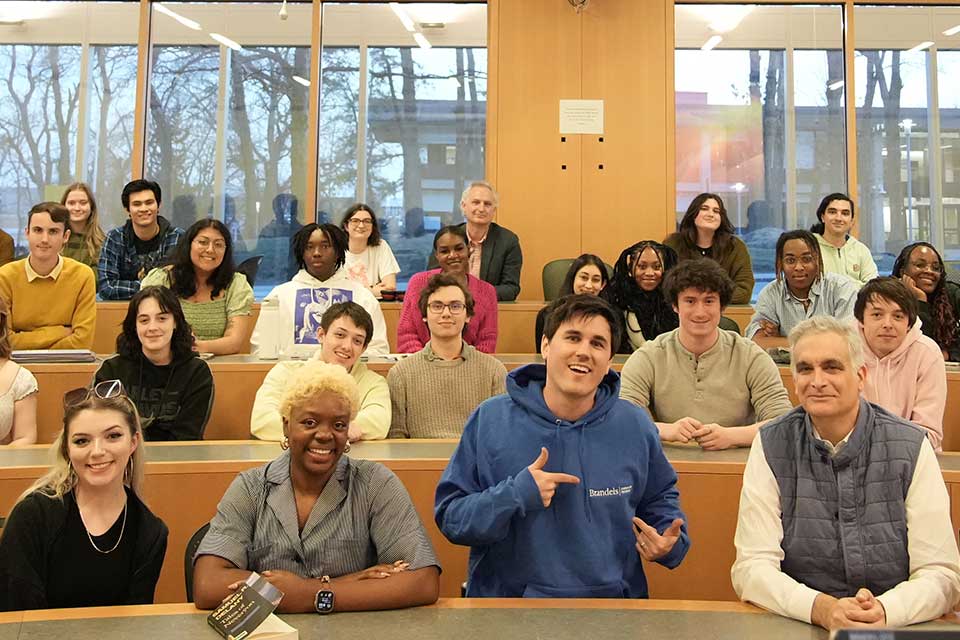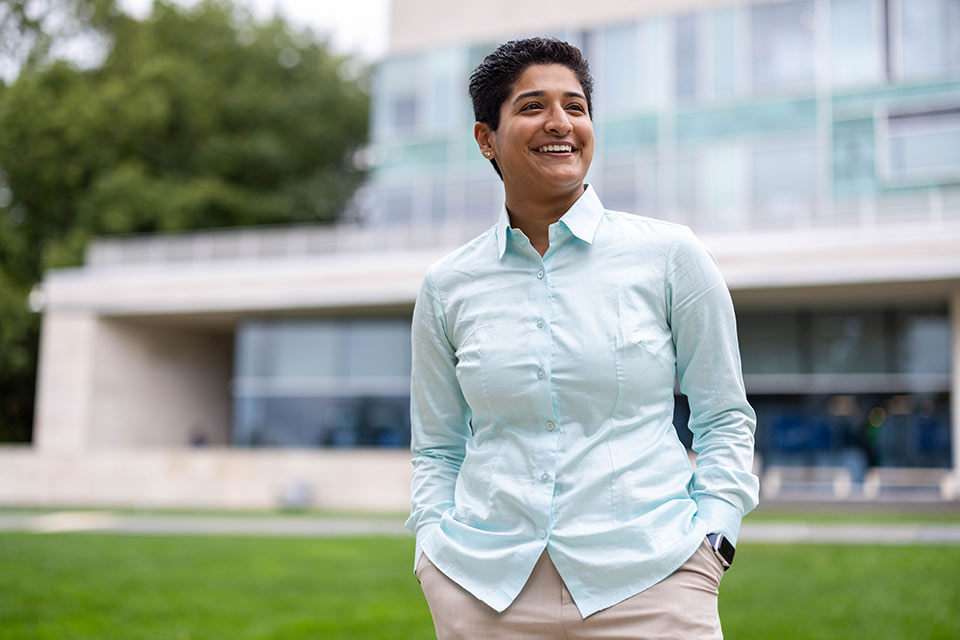An insider’s view to media during polarizing times
Former New York Times Executive Editor Dean Baquet Speaks at Brandeis
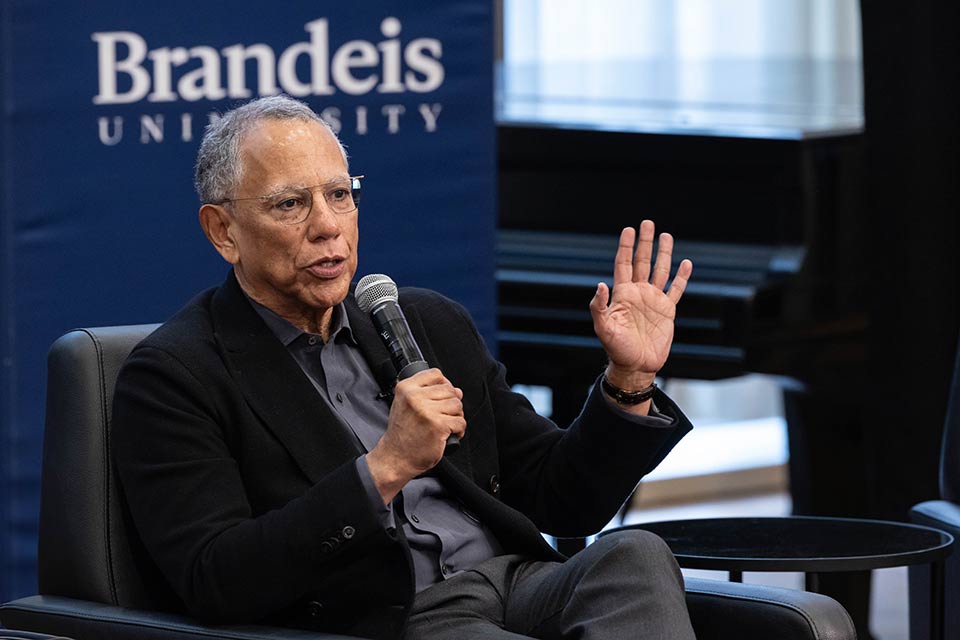
By Carolyn Assa
March 12, 2025
Speaking to two standing-room-only forums on the Brandeis campus last week, legendary former New York Times Executive Editor Dean Baquet warned about the dangers facing the country in our hyper-polarized time, with the Trump administration using lawsuits and other tactics to try to curb the ability of journalists to hold the government accountable.
Referring to settlement discussions over President Trump’s $20 billion lawsuit against CBS News for its editing of a 60 Minutes interview, Baquet said, “I hope and pray that CBS does not settle what everybody thinks is a frivolous lawsuit, because it will make it harder” for everyone in journalism. CBS owner Paramount is currently seeking government approval for a merger with Skydance Media, LLC.
Baquet, the Pulitzer Prize-winning journalist who served as the first Black top editor of the New York Times, spent two full days on campus, engaging with journalism students during a series of events organized by the Brandeis Journalism Program. The public forums on Tuesday were also sponsored by the Dean of Arts and Sciences as part of the fourth annual Elaine Wong Distinguished Lecture Series. Brandeis Journalism students lined up to ask Baquet and other speakers probing questions.
The first forum, moderated by Journalism Professors Ann Silvio and Adriana Lacy, focused on changes to the news media over the last decade. Even though the New York Times is now involved in a lawsuit over the use of its content by OpenAI, Baquet cautioned journalists to avoid the mistakes from a quarter-century ago, when the news media waited too long to adapt to transformational technology. Artificial intelligence, he said, “is going to be just as evolutionary as the internet. We should dive right in, learn everything we can about it, and seize it, and not pretend that it's some evil thing lurking. Because the last time we did that, we got screwed.”
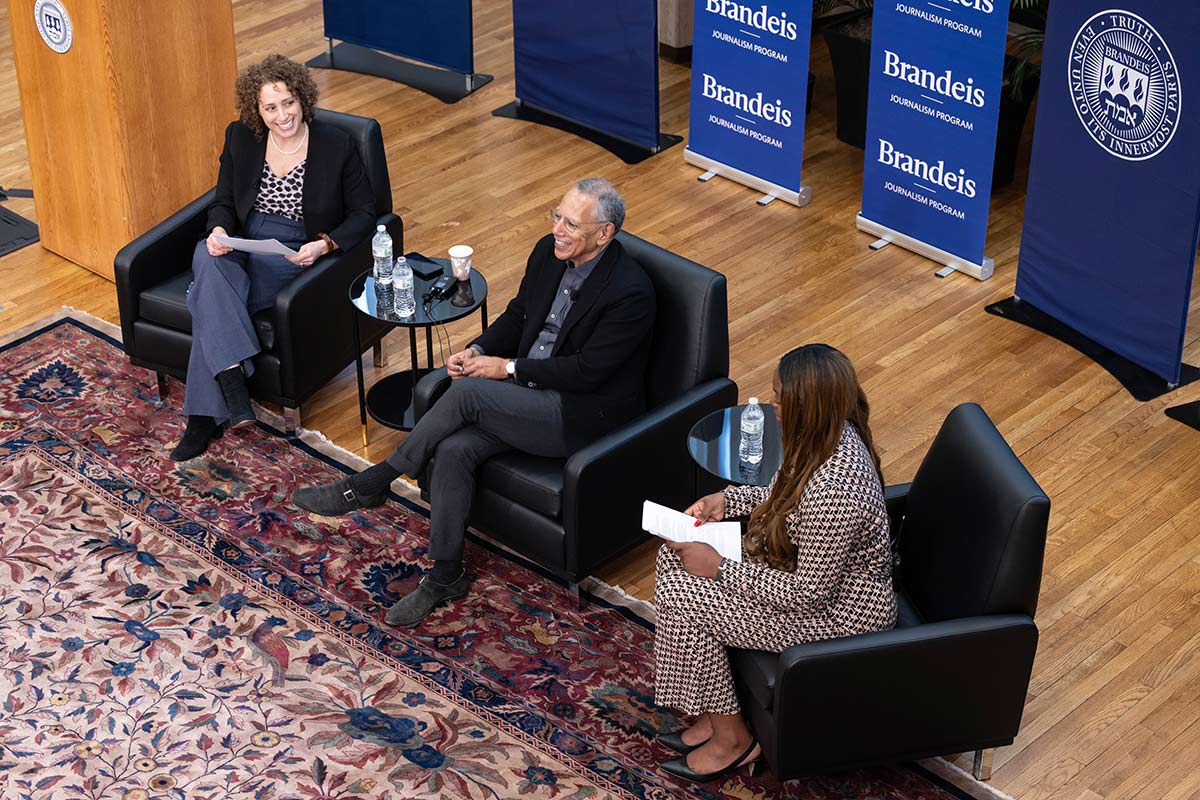
Baquet also criticized Washington Post owner Jeff Bezos for his recent decision to dramatically curtail the range of opinions it will publish. "We're in an avid debate about democracy and what democracy means,” Baquet said, adding, “I think for the Post to actually retreat from that discussion would just be terrible for the country."
During the second forum, moderated by Brandeis Journalism Director Neil Swidey, Baquet was joined by University of Cambridge historian Gary Gerstle, author of “The Rise and Fall of the Neoliberal Order,” and Tufts University sociologist Sarah Sobieraj, a leading authority on digital abuse and extreme incivility.
Gerstle sought to explain the recent changes in political support among so many technology leaders. “The one Presidential administration that tried to … impose serious regulation on the tech companies, perhaps in an effort to curb polarization and do other things, was the Biden administration,” Gerstle said. That, he argued, explains “why so many key figures in Silicon Valley who had been Democrats their entire adult lives … were all sitting on the dais at the inauguration of Trump.”
Baquet said that in 2016, the mainstream media missed the support for Donald Trump. “None of us knew,” he said. “I don’t think we had a handle on the country.”
However, Sobieraj suggested that more in the media would have had a better handle if they had been talking to the right people. Prior to that election, she and a colleague had spent years in the field doing research. As a result, she saw something very different — and much closer to the eventual reality. More and more Americans, she said, were opting to get their news filtered through ideological-driven — and often outrage-fueled — hosts.
“We were interviewing the fans of this polarizing content, so I knew that Trump was going to win for sure, from listening to what these people found so appealing and validating,” she said. “One person described it as like going to political church.” Those patterns have grown only more pronounced in recent years, Sobieraj said, with the explosion of short-form video and podcasts. Newsroom leaders must adapt to meet these changing patterns of media consumption, or risk irrelevance.
“I think the best journalists are widely educated, open-minded, open to other ideas.”
In his current role as Executive Editor of the Times’ Local Investigations Fellowship, Baquet leads local journalists from around the country in ambitious reporting projects that hold powerful interests accountable. He stressed the essential role that local journalism plays in our democracy, and how that sector’s financial woes are eroding the public’s understanding of important community and regional news. “It's a crisis,” he said. “I think we have to keep talking about it and encourage local people to contribute money and be willing to pay for news.”
Baquet stressed that journalists could help address polarization by leaning into their curiosity – focusing more on the questions more than the answers. “I think the best journalists are widely educated, open-minded, open to other ideas,” he said.
When one student asked about his decision to leave Columbia University before graduating, so he could get started working at a daily newspaper in his hometown of New Orleans, Baquet told her with a laugh, “Don’t drop out!”
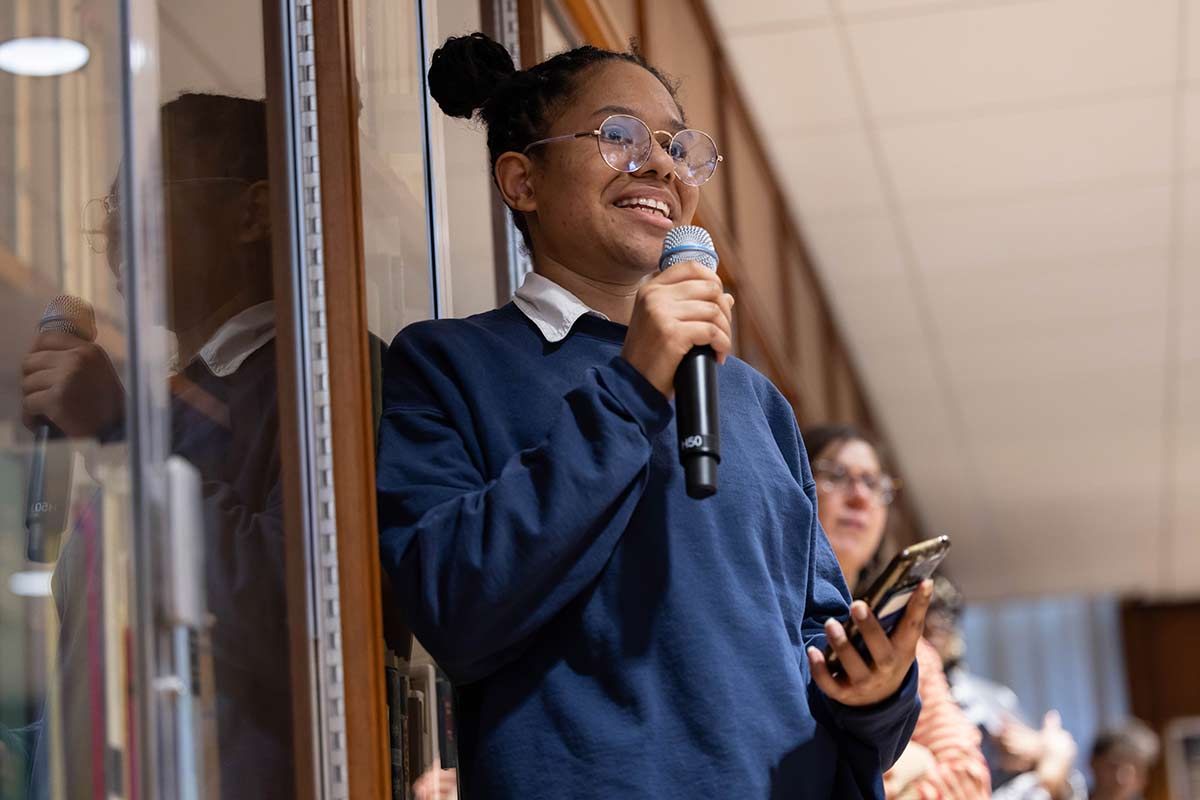
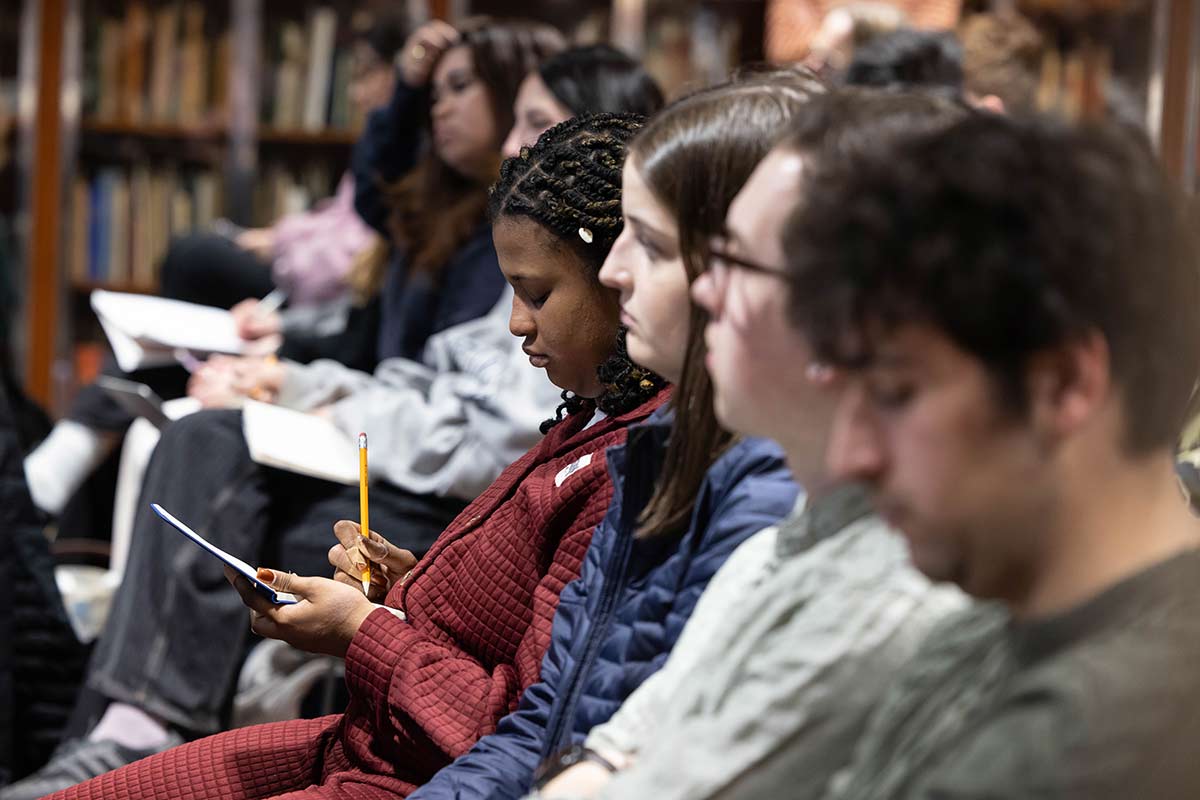
Professor Swidey kicked off the events by welcoming everyone who had packed into Rapaporte Treasure Hall, which included top Boston Globe Editor Nancy Barnes and many of her senior deputies, as well as accomplished journalists from the New York Times, Boston Globe, WBUR, and The Conversation. Swidey then introduced Interim President of Brandeis University Arthur Levine ’70, who marveled at the “powerhouse audience.” Levine, an accomplished author of 13 books, spoke about how our nation is undergoing a profound and rapid change as it shifts from a national, analog, industrial economy to a global digital, knowledge economy. He emphasized the important role journalists can play in helping the nation navigate this transition.
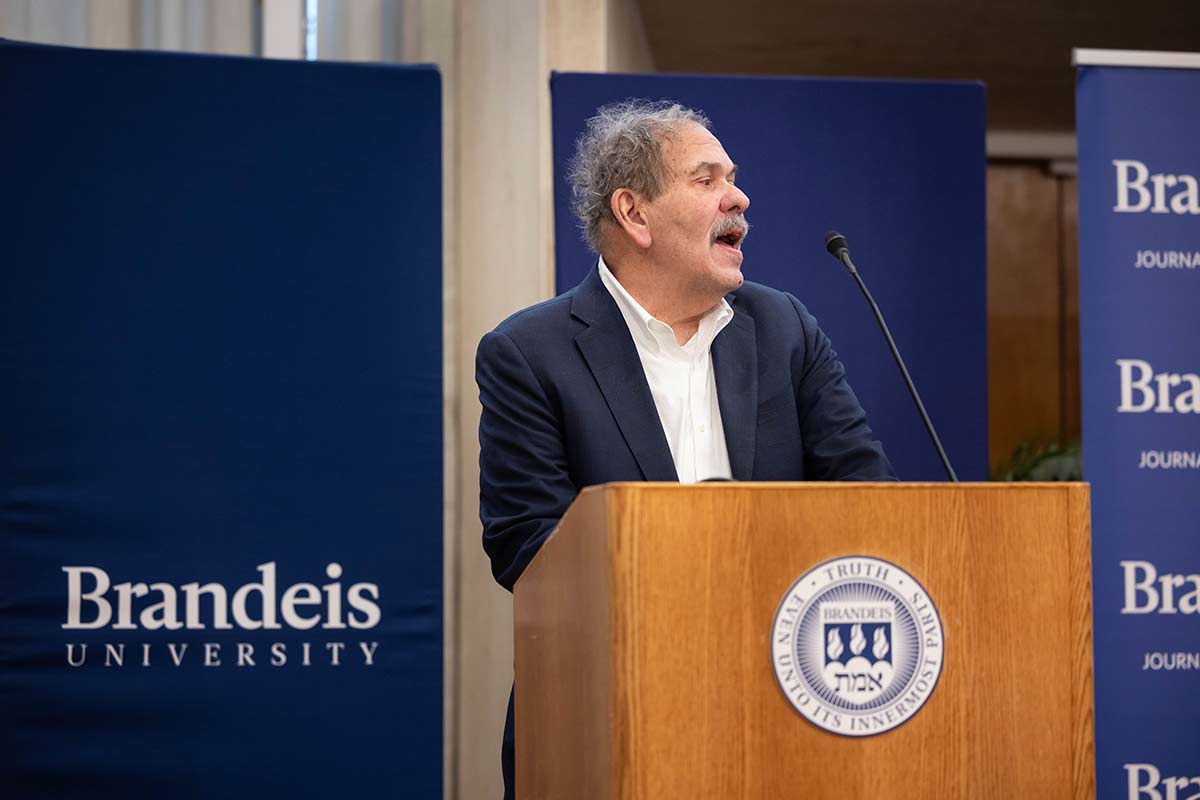
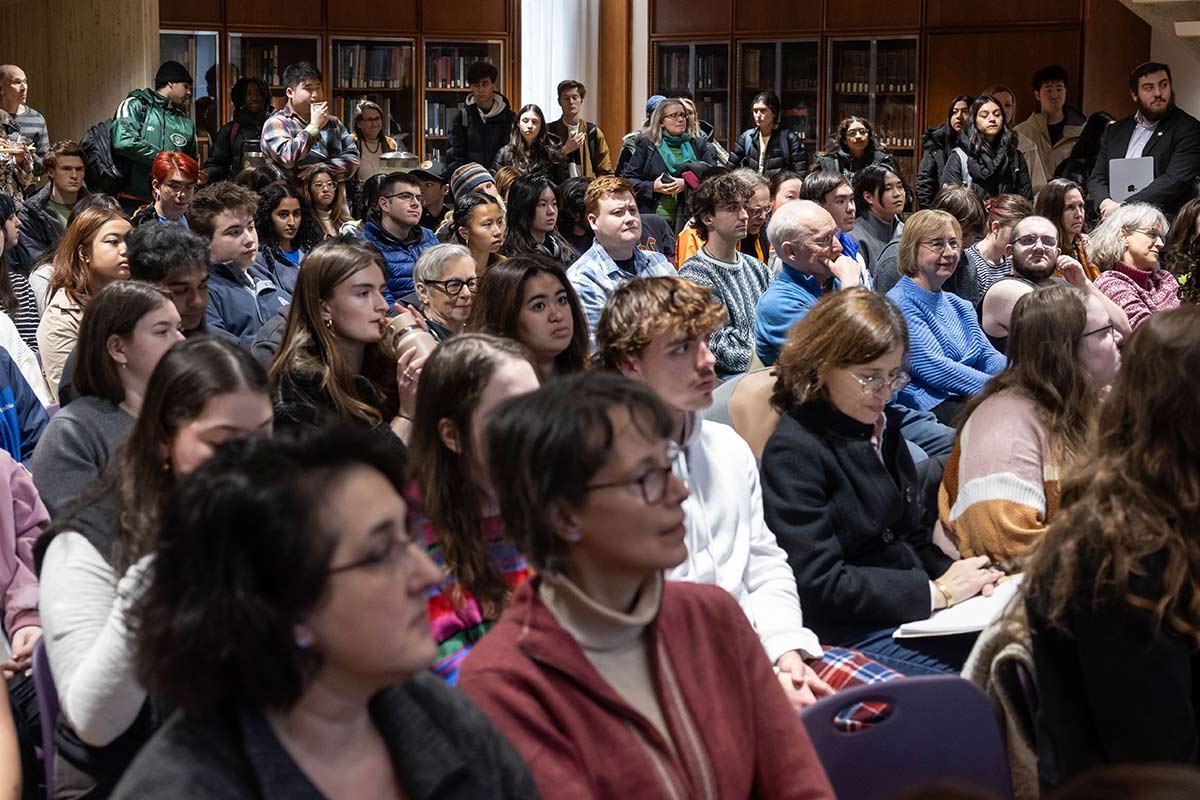
In his welcome remarks before the second panel, Dean of Arts and Sciences Jeffrey Shoulson extolled the work of lecture namesake Elaine Wong during her nearly 40 years as a Brandeis leader. He also said the event showcased the interdisciplinary work that Brandeis specializes in. Co-sponsors included the departments of Politics, Sociology and International and Global Studies.
In recent years, the Brandeis Journalism Program has organized forums featuring former Washington Post Executive Editor Marty Baron, former PBS NewsHour anchor Judy Woodruff, New York Times Deputy General Counsel David McCraw, as well as Boston Globe Associate Editor Adrian Walker and Pulitzer-winning writer Evan Allen.
